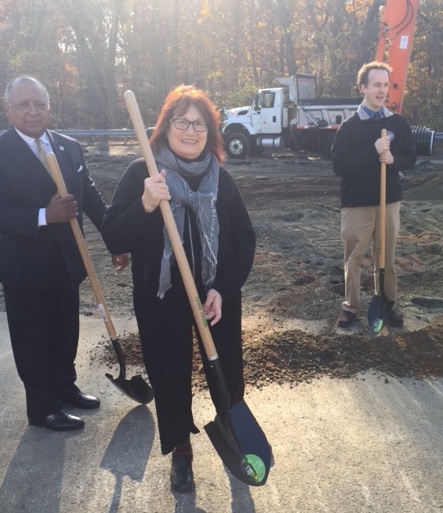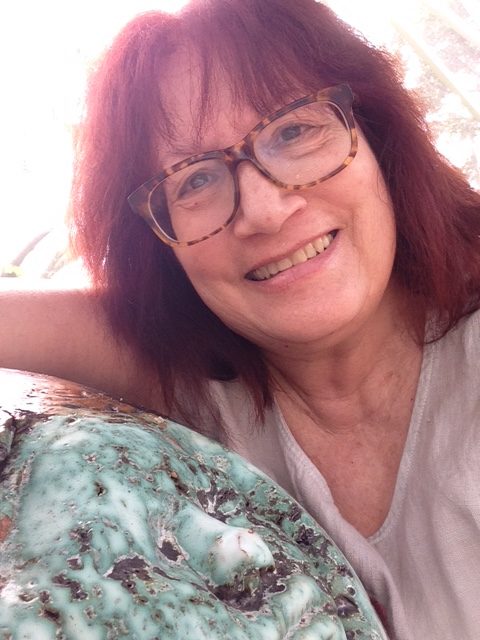
Courtesy of Francine Caplan
1969 marked a time of great change and upheaval in New Haven. It was the year that Alex Rackley was murdered, sparking the Black Panther trials that canceled classes and shut down the University. It was the year that the first female undergraduates were admitted to Yale College. And it was the year that Francine Caplan began work as the head of phonographic records at Yale’s Irving S. Gilmore Music Library.
It was Caplan’s love of music that brought her to work at the University for a few years upon her graduation from Ithaca College. Now, it is her inability to play music with her band that constitutes one of the biggest disruptions in her daily life due to COVID-19 quarantine. Caplan plays the piano and the six bass — a sprawling instrument that is made up of six tall oil drums. The instrument itself is too big to keep in the house, and Caplan typically accesses it on Monday nights, when she practices with the other members of her steel drum band.
“Somebody in our band suggested doing a Zoom on Monday,” Caplan said, shaking her head. “But I’ve got to tell you, it made me very depressed and sad. I like them and they’re all my friends, but just to sit there and talk — it meant we weren’t playing, and the playing is the part that I love, and I missed that.”

When Caplan worked at the University, the music library was housed in Sprague Hall, along with all of its rare original scores. There, Caplan ordered phonographic records and glass score slides for professors at the School of Music and the Department of Music. A self-proclaimed “’60s flower child,” Caplan laughed while recalling the conservative elements of Yale in the ’60s, citing a spat with a professor over her decision to increase the cultural diversity of the music she ordered for the library.
Now, Caplan still lives in New Haven and is riding out the pandemic in her home with her husband, Robert Caplan.
“Probably the only benefit of quarantine is that I don’t hear Francine in the basement,” Robert joked. “When our son lived at home, he did have a regular snare drum set, and you could hear that no matter where you went in the house.”
For Caplan, only one thing overshadows the loss of Monday night practice: her inability to physically be with her children and grandchildren, who also live in New Haven. Still, Caplan saw one silver lining, she said — quarantine has forced everyone to slow down their fast-paced lives, giving her grandchildren more time to connect with her virtually.
Yet in her pre-pandemic life, Caplan herself loved to stay busy. Far ahead of the curve, Caplan has been taking online classes at Southern Connecticut State University for the past few years and studying environmental geology. She also runs a consulting business — mainly working with nonprofits — called COMMUNICADA, and spends the rest of her time planning trips around the globe.
“My husband and I remembered when both of our parents said they were unable to travel anymore,” Caplan said. “We are able to travel, so we figured, let’s just do it a lot. We leave our travel stuff that we need on a bed in another room and we could easily just pack up and get out.”
Late last year, Caplan innocuously canceled one of her overseas trips as she feared it would overlap with a graduation for her grandchildren. The holiday was one to China and Tibet, she said, and one of the cities she had planned to visit was Wuhan –– the original epicenter of the COVID-19 outbreak.
While the couple relishes adventure, Caplan’s husband Robert said the two are content to stay home for the time being. As Caplan has recently undergone a foot surgery and is now using her time in quarantine to recuperate at home, it is her husband who has seen life around the city scale down significantly.
Robert, who is a computer consultant, continues to work by remotely controlling desktops and fixing glitches. Still, his life is noticeably more constrained under quarantine, as he is now unable to work with customers face-to-face or leave his home when he wants to. As he now feels a greater sense of free time and more flexibility in his schedule, Robert said he sees the lockdown as a taste of what full retirement could be like.
While he said that he is concerned about the unknown of when life might return to normal, Robert recognized that things are merely being postponed and he continues to look forward — for example, the couple pushed a trip planned for this summer to Australia and New Zealand to next year.
Sitting beside her patio, Caplan admired the cherry blossoms that have begun to cluster outside her window.
“I know it’s going to pass,” Caplan said. “I have the wisdom of years to know it will pass.”
Meera Shoaib | meera.shoaib@yale.edu
This story is part of a larger series profiling Yale and New Haven community members during the COVID-19 pandemic. To read more, click here.







